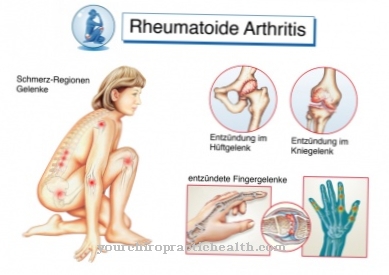Our time has become more hectic. This not only applies to everyday work, but also to private life. But especially in the world of work, many employees and employers are not up to the constant stress. The result is burn-out for many people. What are the reasons for this and how is it noticeable? And even more important: How can you prevent and remedy the consequences?
What is burn-out?

Burn-out comes from English and means "to burn out". The term describes the feeling that those affected have. The causes are varied and it is more a bundle of symptoms that can gradually or clandestinely creep into our lives.
The terms tension and overwork can provide an initial orientation for the origin of the suffering. However, they are not enough, as, for example, a person's social competence, character and organizational skills can also contribute to the ultimate burn-out.
The syndrome cannot be restricted to certain professional groups either. It is clear, however, that some, such as teachers, managers or the self-employed, are more likely to be affected than others.
Symptoms
The problem with burnout is that stress and overstimulation occur in almost everyone's life. The individual symptoms can appear singularly and are nothing unusual in and of themselves. Anyone who notices several signs should be careful in any case.
Additional advice, such as an article on the Lexware.de specialist portal, provides information on this. For example, if you don't sleep through the night or are chronically tired, you should try to pay attention to the causes.
Persistent nervousness, dizziness or headaches are also signs. Circulatory problems or headaches should also make potentially affected people sit up and take notice.
Consequences in everyday life
There are social, mental, emotional or physical consequences that gradually become noticeable in the everyday life of those affected by burnout. Sleep problems can grow into an inability to find rest at all. Tinnitus or sudden hearing loss can also occur with high levels of stress over a longer period of time.
Colds, exhaustion or other, lighter complaints are also recorded. The excessive consumption of alcohol or the abuse of other stimulants (caffeine, nicotine) also sometimes indicate this. In addition to the physical consequences mentioned here, there can also be sexual aversion.
But there are also many problems in the social area. In general, a dulling towards other people and a gradual withdrawal from all human relationships, for example from friends or partners, can be observed. The decreasing ability or the lack of will to deal with other people results, for example, in sick leave or the permanent cancellation of appointments with social interaction.
Emotionally, those affected initially experience helplessness to free themselves from their situation. This is accompanied by a slight excitability. Disillusionment, which can extend to diagnosed depression or suicidal thoughts, is another drastic emotional consequence.
Problems with remembering, being overwhelmed and unable to make decisions, but also a lack of creative energy are to be cited as intellectual or mental problems.
You can find your medication here
➔ Medicines for relaxation and nerve strengtheningPrevention & Remedy
An important term that has established itself in today's working world is in this context that of “work-life balance”. This means that work should not get out of hand and should be strictly separated from leisure.
Nowadays we can be reached almost anywhere and at any time via text messages, e-mails, telephone, that is, through the Internet and mobile technology. Employers and employees should, if possible, draw a clear line here when the workday begins. A day of complete rest, when the computer does not start up and the phone can ring for as long as it wants, are perhaps suitable ideas. Incidentally, this also applies to television.
Otherwise, sport and relaxation techniques that should not be started when it is too late are suitable. Sport strengthens the immune system, boosts self-confidence and promotes general health. Here, however, you should find a sport that you like yourself. Otherwise your motivation will suffer.
As a preventive measure, every employer can also consider whether to offer company sports (e.g. during the lunch break), vouchers for fitness studios or the like. Vouchers are even tax deductible up to a certain amount. Nowadays there are a lot of office jobs for which a lack of exercise and thus a lot of physical ailments seem preprogrammed. Therefore, this is not only useful for potential burn-out candidates.
It often helps to talk to people you know in a relaxed atmosphere. Social contacts should be strengthened - perhaps without undertaking too much. This also includes indulging in something instead of just putting your energy into work. Even if it sounds unusual: Humor in the workplace creates a good and relaxing atmosphere. There are many options privately. You can just lie in the sun for an hour, go to the football stadium with old friends, enjoy a bubble bath with candlelight or a meal in a great restaurant - there are many different options here.

















.jpg)



.jpg)

.jpg)




